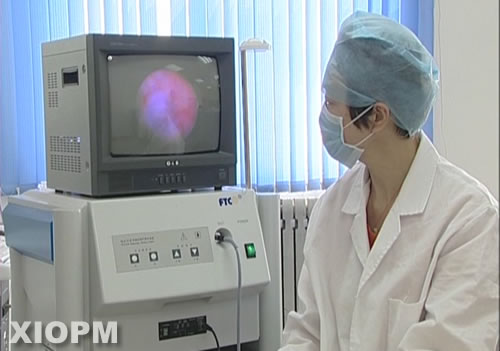The “Endoscopic Abortion Suction System” Project jointly declared by Xi’an Institute of Optics and Precision Mechanics of CAS and it’s investment holding enterprise Feimiao Photoelectrical Technology Co., Ltd (Xi’an) has won the first prize of Scientific and Technological Award of Shaanxi Academy of Science.
Family Planning Policy is China’s basic national policy, and induced abortion is a conventional gynecological operation adopted after contraception failure. In the past in China, electric suction unit was usually adopted in making induced abortion operations. Since the doctors could not openly watch the operation, they made operations with the help of experience and handle. In order to meet clinical needs for endoscopic abortion suction system to realize openly-watched induced abortion operation and ensure small wounds and safe and reliable operations, Xi’an Institute of Optics and Precision Mechanics put forward the conception of visual induced abortion. In 2000, based on its technological advantages in light, mechanic, electronic and image processing, the Institute formally set the research project and later transferred the intellectual property rights of this research project completely to Feimiao Photoelectrical Technology Co., Ltd (Xi’an) to further promote the research initiative.

Doctors Implement Induced Abortion Operations by Watching Endoscopic Images
Traditional endoscope usually needs affusion or insufflation to form observation distance in doing operations and eliminate the exterior attachments of the observed object. For pregnant women, insufflating uterus is too risky to be forbidden. At the same time, since the pregnant women’s uterus will easily bleed and be filled with physiological mucus, the traditional endoscope cannot solve the technological problems. The NLX series of Endoscopic Abortion Suction System developed by Xi’an Institute of Optics and Precision Mechanics and Feimiao Photoelectrical Technology Co., Ltd (Xi’an) skillfully used the pressing of the transparent clinical cannula on the opaque liquids of the observed object’s surface, and its non-hydrophilic principle, thus solved two big problems of forming visual distance and eliminating surface attachments, then realized the clinical utilization of the product, settled the visual problem for medical science in blood environment, and provided technological reference for future visualized operations with medical apparatus.


